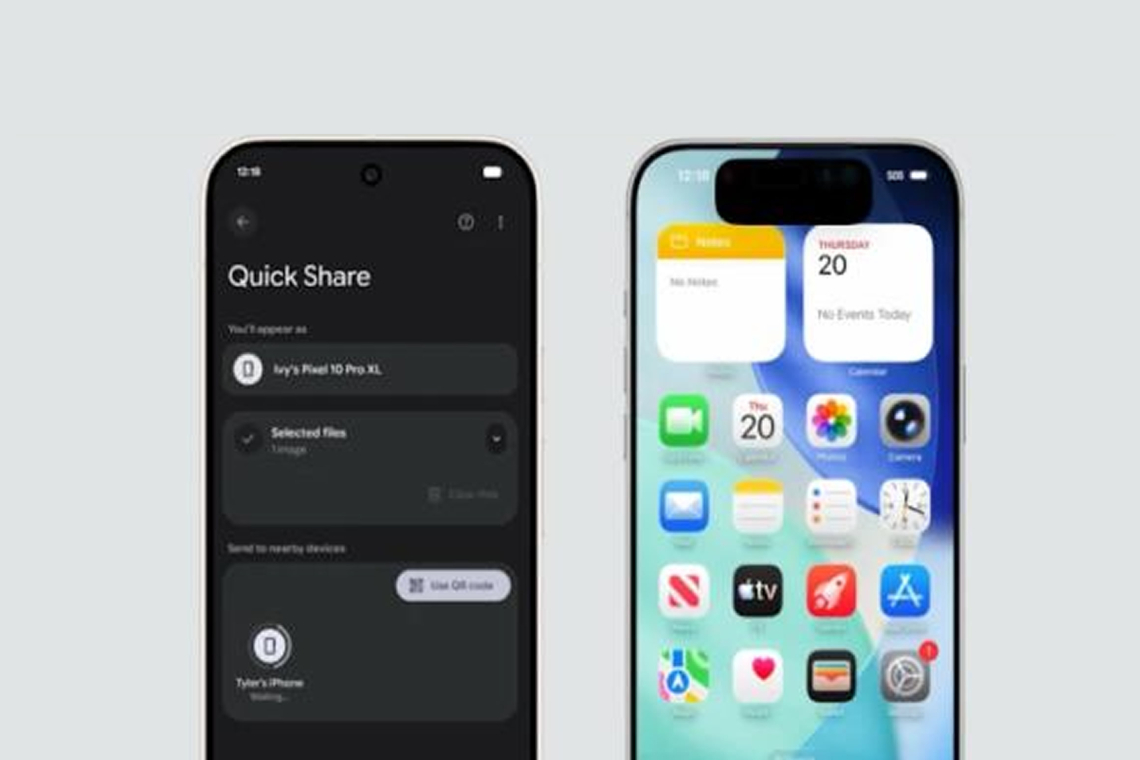In a surprise move, Google announced that it has updated Quick Share, its peer-to-peer file transfer service to work seamlessly with Apple’s AirDrop. This integration allows users to more easily share files and photos directly between Android and iPhone devices.
Cross Platform Interoperability
The new cross platform sharing feature is currently limited to the Pixel 10 lineup and works with iPhone, iPad, and macOS devices. Google plans to expand this capability to additional Android devices in the future.
The only prerequisite for transferring a file from a Pixel 10 to an Apple device is that the Apple device owner must set their iPhone, iPad, or Mac to be discoverable to "Everyone" for a 10 minute period. Similarly, to receive content from an Apple device, Android users must adjust their Quick Share visibility settings to "Everyone for 10 minutes" or be in "Receive mode" on the Quick Share page.
Dave Kleidermacher, Vice President of Platforms Security and Privacy at Google, assured users that the feature was built with the same rigorous security standards applied to all Google products.
Security and Development
The feature relies on a multi layered security approach powered by the memory safe Rust programming language. Google stated that using Rust creates a secure sharing channel that eliminates entire classes of memory safety vulnerabilities, making the implementation resilient against memory error attacks.
Crucially, the tech giant noted that the feature does not rely on any workarounds and that the data is not routed through a server. Google expressed interest in collaborating with Apple to enable a "Contacts Only" mode in the future, which would enhance privacy.
An independent assessment by NetSPI found that Google's implementation of Quick Share does not introduce vulnerabilities into the broader protocol ecosystem. In fact, NetSPI noted that Google’s process of file exchange is "reasonably more secure" than other implementations because it does not leak any information, a common weakness in other manufacturers’ systems.
While their analysis uncovered a low severity information disclosure vulnerability that could allow an attacker with physical access to access information like image thumbnails, Google has since addressed this flaw.
In related security news, Google also announced it blocked over 115 million attempts to install sideloaded apps requesting access to sensitive permissions for financial fraud in India. The company is piloting a new feature in collaboration with financial services like Google Pay and Paytm that shows a prominent alert if a user opens a risky app while screen sharing on a call with an unknown contact, providing a one tap option to end the call and stop screen
sharing. Additionally, Google is developing Enhanced Phone Number Verification (ePNV), a new Android based security protocol that replaces SMS OTP flows with SIM based verification to improve sign in security.
Found this article interesting? Follow us on X(Twitter) ,Threads and FaceBook to read more exclusive content we post.



